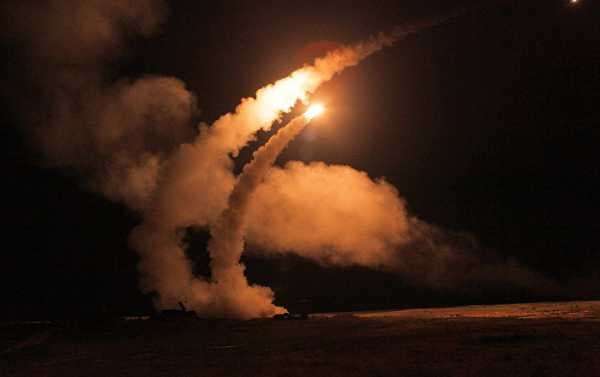
As the largest economies in the EU increasingly do business with Moscow, a growing number of diplomats in the west now privately admit that sanctions against Russia are a failure.
Introduced against Russia in March 2014, the west’s sanctions regime promised to isolate Moscow, cutting off access to key business and financial resources. With the increasing international sales success of the nation’s cutting-edge, truck-mounted S-400 missile launchers, however, it appears that the punishment regime is in its death throes.
At the equivalent of $400 million each, Russia’s S-400 — the world’s most advanced air defense system — is a hot ticket, with sales rocketing upward even as Washington and its allies attempt to punish those nations making the purchases.
India and Turkey both signed agreements to acquire S-400s in 2018, even as China has already received the first shipments. Negotiations have also begun between the Kremlin and Iraq, Saudi Arabia and Qatar to buy the state-of-the-art mobile defense systems.
“There is no question about the isolation of Russia. Nobody is even talking about it,” noted the editor-in-chief of Russia’s Arms Export journal, Andrei Frolov, cited by Ft.com.
“There are major breakthroughs thanks to China and India […] the message is that Russia is still open for business,” Frolov observed.
US measures designed to punish Moscow have, at the very least, fallen short, although many in diplomatic and financial circles consider the sanctions regime to be an outright failure, according to reports.
Deepening ties between Beijing and Moscow have circumvented US efforts to block access to financial and trade resources while concurrently strengthening the Kremlin’s hand in global diplomacy, according to Ft.com.
Israel, Iran, Turkey and Saudi Arabia boast warming relationships with Moscow, allowing expansion and not a little influence in the Middle East, even as Washington has pulled back from its former heavy-handed foreign policy moves in the region.
A rising European demand for Russian oil and gas alongside increasing foreign direct investment from the continent have been accompanied by a consistent run of diplomatic visits from EU leaders, a move that flies in the face of bellicose rhetoric from Brussels ostensibly in support of the Washington-led sanctions.
In considering the likelihood of the west successfully hemming in the Kremlin through a series of financial and political blockades, Russian experts tend to say out loud what Western analysts continue to only whisper.
“Isolation is impossible, that is clear,” pointed out Valdai Discussion Club chairman Andrei Bystritsky, cited by Ft.com.
“Now there are so many options,” for Moscow on the international stage, the Russian think-tank head added.
“It is pretty clear from where we sit that by trying to isolate Russia, America is doing a good job of isolating itself,” noted a Moscow-based Asian diplomat who requested anonymity as he was not authorized to speak publicly to the press, according to the Financial Times.
“Even the Europeans are developing their own independent Russia policy,” the unnamed source added.
Whether Democratic gains in Washington following the 2018 midterm elections will result in additional pressure on Moscow is not yet known, but global demand for Russian output continues apace, most recently evidenced in a $5 billion arms deal with India.
Russian President Vladimir Putin expressed his administration’s sentiment with regard to Moscow’s growing global influence.
“We will continue to closely follow the trends of the global arms market, and to offer our partners new flexible, convenient forms of co-operation,” Putin stated at a recent meeting of foreign arms sales officials.
“This is all the more important in the current conditions, when our competitors often resort to unscrupulous methods of struggle: they try to crush and blackmail our customers, including through the use of political sanctions.”
Sourse: sputniknews.com






